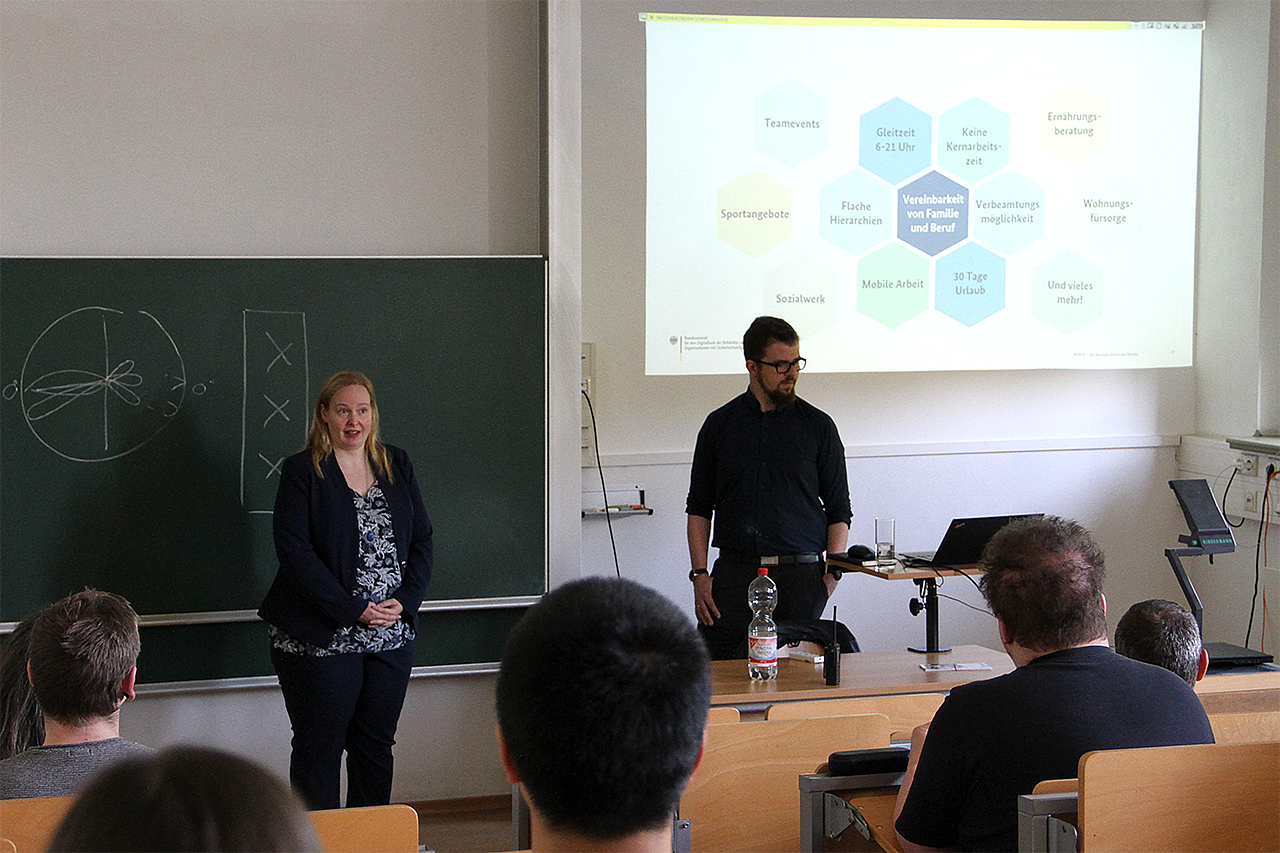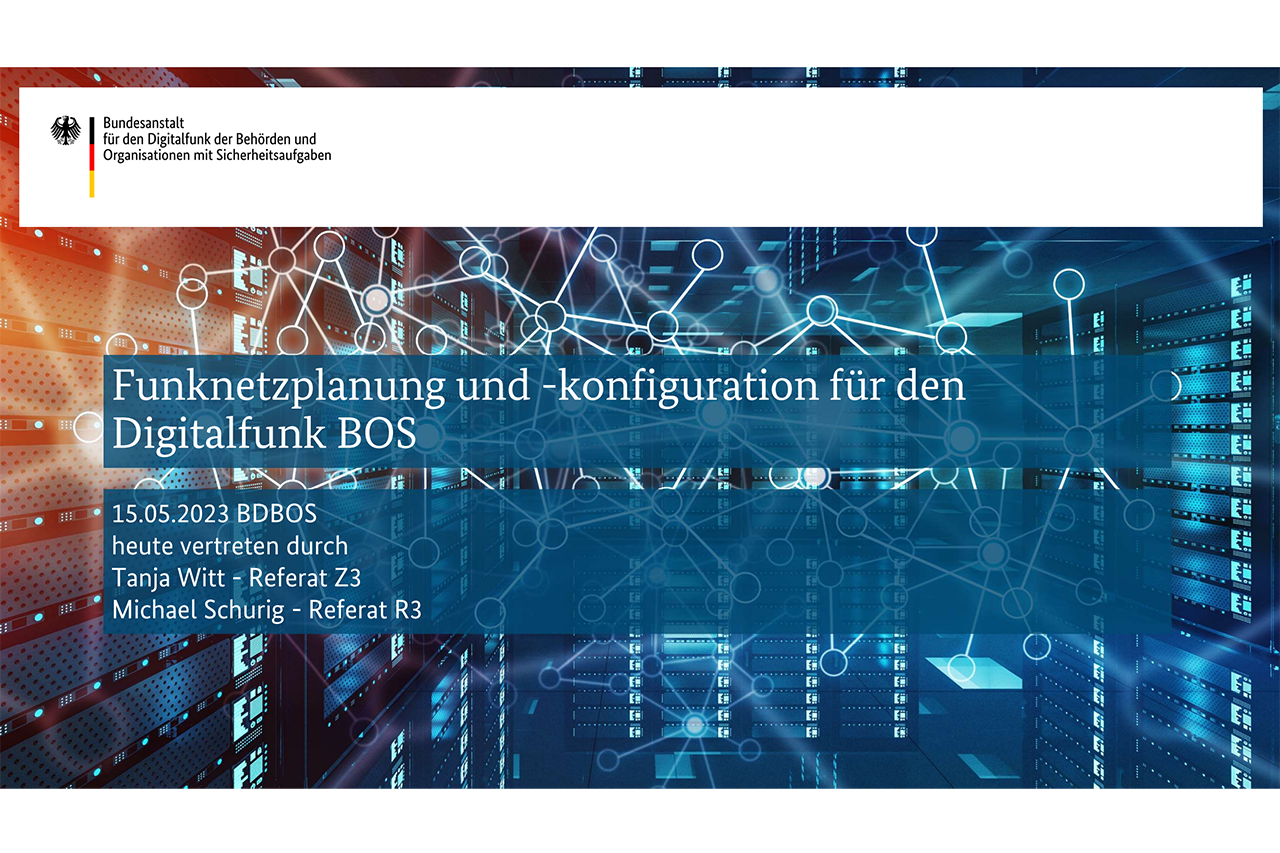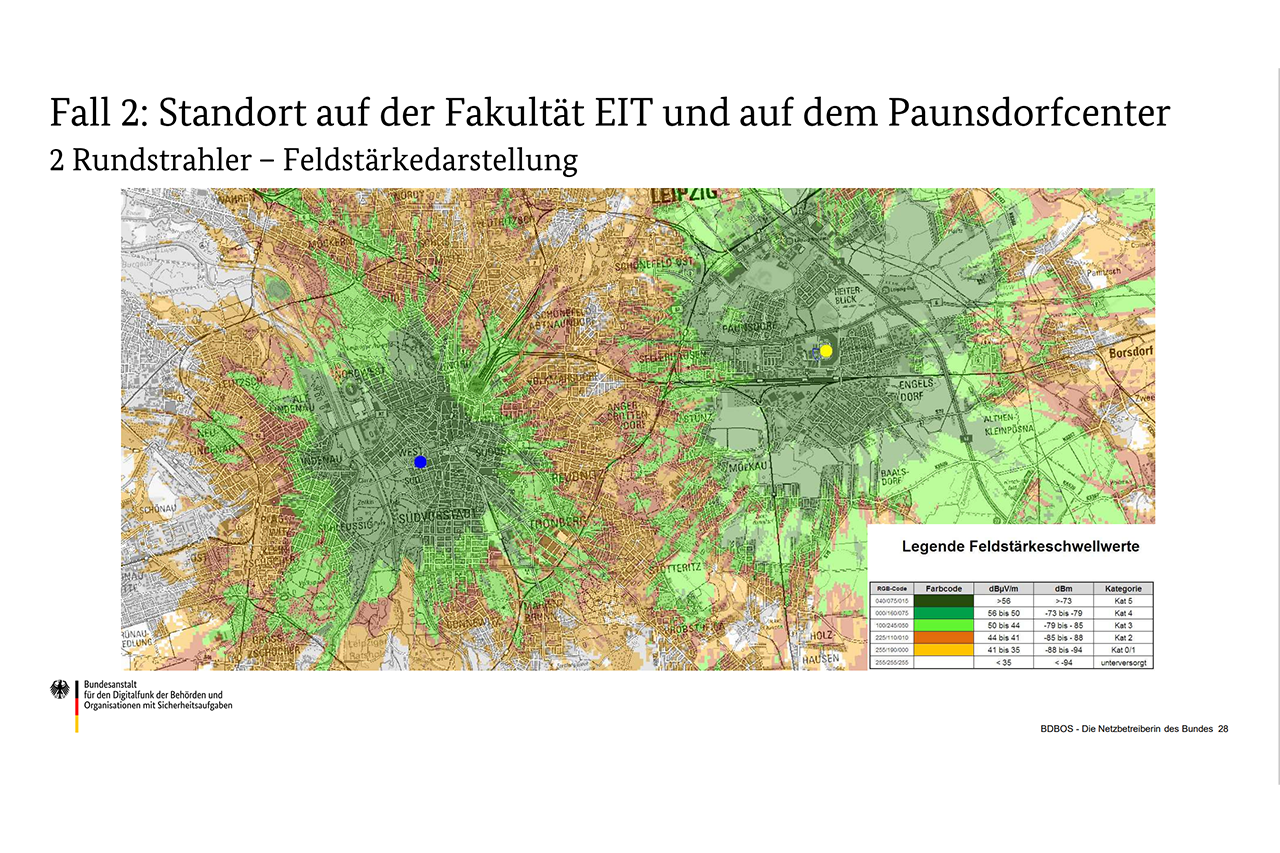The Federal Institute for Digital Radio gives students of electrical engineering and information technology at HTWK Leipzig an insight into future careers in high-frequency technology
The degree programme at the Faculty of Engineering at HTWK Leipzig is characterised by a close integration of teaching and practice. In view of the shortage of skilled workers, this also means giving students an insight into various professional fields during their training at the university. At the beginning of May 2023, the Federal Agency for the Digital Radio of Authorities and Organisations with Security Tasks (BOS) took the opportunity to offer students an insight into the professional field of radio frequency technology as part of the elective module Applied Radio and High Frequency Technology. After all, qualified personnel for setting up and maintaining secure communication networks are indispensable for authorities and organisations with security tasks such as the fire service and disaster control.

Tanja Witt and Michael Schurig from the Federal Agency for the Digital Radio of Authorities and Organisations with Security Tasks (BOS), which is responsible for the fire brigade, police, rescue services and disaster control, visited students on the Electrical Engineering and Information Technology course at Wächterstraße 13 on 13 May 2023.
In their presentation as part of the compulsory elective module Applied Radio and High Frequency Technology, they explained the structure of the comparatively young employer to the students, as the BOS has only been in existence since 2007.

The task of the BOS is to provide a "highly secure and highly available communication network for mission-critical voice and data communication for the BOS and the German Armed Forces". Michael Schurig, also a former graduate of HTWK Leipzig, presented the planning and implementation of radio networks.

Using two radio stations, one on the roof of Wächterstraße 13 and another on the Paunsdorf Centre in Leipzig, Michael Schurig demonstrated the approach using a computer-based planning tool. He had previously explained the importance of different antennas and the parameters required to ensure coverage quality in radio network planning. In the interaction with the students present, various network coverage scenarios were simulated and the significance of zones with good to poor coverage for the emergency services on the city map was discussed. The focus was on coverage in the area around Leipzig Central Station, which is not directly between the two radio stations. In order to coordinate the participants in the radio network, they must establish a stable connection to one of the two stations, similar to how this is done with conventional mobile phones.
Tanja Witt from the BOS HR department then presented the working conditions, funding opportunities and career prospects at the federal organisation. She emphasised that the almost complete digitalisation of work processes allows for very flexible working hours and attendance and is therefore in no way inferior to popular fields of work in the IT sector.
The Faculty of Engineering would like to thank the speakers and participants.
We will endeavour to repeat and intensify the information event.